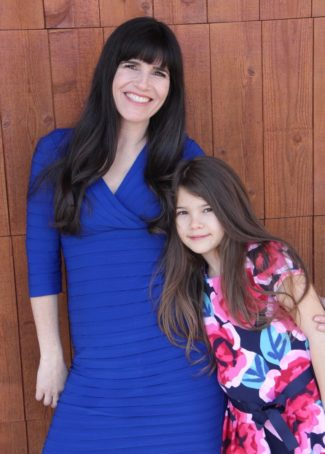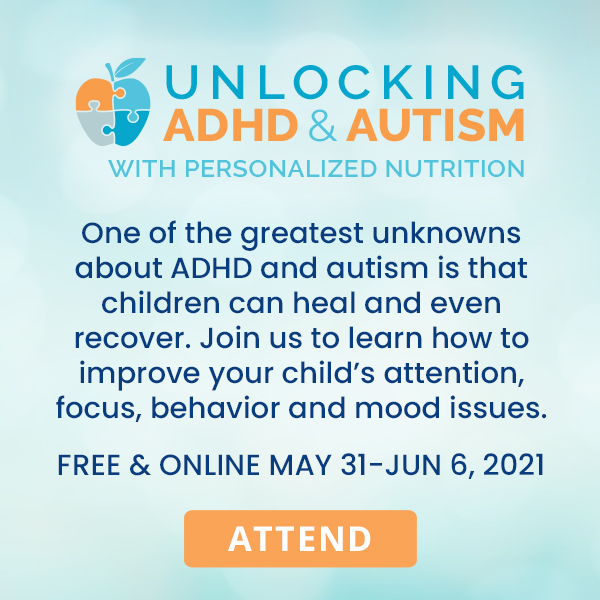Personalized Nutrition: The Key to Health and Healing
Featuring
Julie Matthews, CNC
WATCH
LISTEN
READ
Rebekah Kelley: Welcome to the Humanized podcast, all about personalizing your health. I’m Rebecca Kelley, your host, and I’m so excited to share with you our guest, Julie Matthews, and the topic is going to be, Personalized Nutrition is the Key to Health and Healing. But before I introduce Julie, I want to remind everyone to subscribe, to get all of our variety of casts and audio, video and transcription at HumanizedHealth.com. I’d also like to thank our lead sponsor Village Green Apothecary at MyVillageGreen.com.
So a little bit about Julie Matthews. She’s a certified nutrition consultant and published researcher specializing in complex neurological digestive and immune conditions, most notably, autism. She is the author of the award-winning book, Nourishing Hope for Autism, and co-author of a study providing the efficacy of nutrition and dietary intervention for autism, published in the peer review journal Nutrients. Julie’s approach is based on the personalized nutrition needs of each person and stems from her 20 years of clinical nutrition experience and research. Her methodology of BioIndividual Nutrition® helps individuals and practitioners who work with a wide range of disorders for adults and children improve health and healing. Julie has a private nutrition practice in San Francisco, California, and supports families and clinicians from around the world with her nutrition learning tools and professional training courses. For more information, you can actually reach her at NourishingHope.com and BioIndividualNutrition.com.
But let’s go right into getting this information, because it’s very valuable and very interesting. So Julie, welcome.
Julie Matthews: Thank you, Rebekah. I’m so glad to be here.
Rebekah Kelley: It’s so great to have you. I just want to jump right into the questions and get right to the good stuff. So what do you mean by personalized nutrition? I’ve heard that term, but what does it really mean?
Julie Matthews: Yeah, this is a great question because most people think, “Oh, of course, you know, I do nutrition, so it’s personalized nutrition,” but nutrition has changed a lot over the years. In personalized nutrition, we’re getting very specific about being able to tailor the diet and nutritional needs to the person. So when I think about it, I think about bio-individuality, or biochemical individuality, and looking at each person’s unique underlying factors – environment, biochemistry, genetics – and tailoring the diet and nutrition choices very specifically to them.
So instead of one diet, you know, you always hear about the diet of the day, right? Maybe one year it’s this, one year it’s that. But the truth is that those diets all have something valuable for somebody, which is why those people are so passionate about that diet. But then for every person that I would see where that diet would be helpful, there’d be somebody that that diet wasn’t helpful for. And so I really learned as I was working with people that you really need to tailor the therapeutic diet, or combination of therapeutic diets, to the unique needs of that individual. So really that’s what personalized nutrition is looking at, all of those different factors, and then customizing the diet and nutrition approach very specifically.
Rebekah Kelley: But how did you discover this? How did you discover the power of personalized nutrition?
Julie Matthews: So, I’m a certified nutrition consultant and actually a published researcher, as well. And when I was working with clients, I started to realize that, as I was kind of saying, one person would come in and they’d get great results with a diet and another person would come in and they wouldn’t.
My specialty is actually autism. And so I had a very core group of people that I was working with where I could very specifically look at this one group of people and learn everything about 10 of… of course, again, everybody’s unique and everybody has different factors, but I was able to look at this one condition, and these people that were part of this had kind of one set of symptoms, and really look at what helped them and what didn’t. And then I would figure out, okay, well, when did this particular diet help these people, under what circumstance, what underlying factors, what common symptoms did they have that improved, and which ones didn’t, and why? And so I discovered really early on that there wasn’t one diet for everybody, that everybody was unique. Even within this one condition, everybody was so different, and I was able to see when to use a diet for which person. And when I was able to tailor a diet to the individual needs of that person, I saw really, really great results. And so that’s what had me seeing that everybody was unique and really needed this unique approach.
Rebekah Kelley: Wow. Now, are there some basic principles that work across individuals, or one diet that’s best, or is it truly completely unique and very different?
Julie Matthews: Oh, you have a very good point there. There are some things that are typically similar among most people. Again, once I say that, there are going to be outliers. For example, usually vegetables are really good. We might need to tailor which vegetables somebody can tolerate. Some people can’t handle FODMAPs. Some people can’t handle salicylates. Some people can’t handle oxalates. Some people do best with the carnivore diet. But for the most part, most of us do well getting good vegetables in our diet.
So that’s a principle. Getting organic food, getting out the junk food, the artificial additives, food colors, artificial flavors, preservatives, taking out MSG, genetically modified foods, pesticides. Humans don’t do well with things that aren’t natural because we weren’t made to be able to tolerate them. So that’s usually something that’s good for most of us, getting those good organic vegetables in.
Getting good quality animal foods usually are beneficial for most of us because they have all the amino acids we need that can help with growth and repair. And we want to make sure they’re as nutrient-dense as possible and free of all of the additives. So we want them to be pasture-raised, raised in a way where they’re going to be as healthy as they can be.
Getting good fats for the brain is really going to be beneficial. And I like a wide range – some fish oils, some animal fats, some plant-based fats. Again, everybody’s going to have a bit of a different ratio of what they need, but overall, getting good quality protein, fats and vegetables is good for most of us.
And then we can tailor it from there. As I said, maybe some people are going to do better with a low salicylate diet, or a low histamine diet, or a low oxalate diet, or a low FODMAPs diet, or a grain-free diet. But yeah, there are some principles that generally I think that most of us can do and then we can customize it and personalize it from there.
Rebekah Kelley: Thank you. So when you are teaching parents or other individuals, or maybe even training practitioners, what dietary approaches do you teach?
Julie Matthews: So I teach many of the ones I kind of alluded to there. So I’m looking at ones that are going to be… gluten-free is a big one, dairy-free is a place I often start out with. Gluten is very inflammatory to the gut and Dr. Alessio Fasano discovered zonulin, which is a protein that we have that regulates our gut and whether it’s leaky, or whether it’s nice and protects us from things that we don’t want to get in and is properly permeable. And he found that gluten causes this zonulin protein to really create leaky gut in all of us, regardless of whether we’re celiac or have a really strong reaction. So being careful of gluten, I think, is prudent for most of us.
There’s actually an interesting study on pregnant women and looking at how much gluten they had. I’m trying to remember the effect, but I remember it was, I think the borderline here was like one piece of bread or something, and found that women that had more gluten had children with more challenges. And I think it was a challenge related to their blood sugar. I’m forgetting the exact study results now, and I don’t necessarily recommend eating a piece of bread every day, but the point was, the more people ate, the more challenges resulted. And so I think the less gluten that most of us can eat, the better.
So gluten-free diets, I find, especially with the population I work with – children with ADHD and autism – gluten-free is really important, and dairy-free. They are two of the most common inflammatory proteins. And then from there, I like to help people take kind of a step-by-step approach. You could go straight to the ketogenic diet, but it’s a very restrictive diet. And if we don’t need to go into ketosis and go all the way there and limit our carbohydrates that significantly, we can go step by step our way. So maybe we start with gluten-free, then maybe some people go to grain-free, then maybe they go to some of these diets, like a specific carbohydrate diet, which also takes out starches like potatoes, or maybe they need a paleo diet that takes out legumes.
And then maybe somebody might eventually need something like a ketogenic diet. But I like to teach people, I have a 12-step process to take them step by step through some of the easier diets, where people tend to have more challenges, and step up to if they need a more restrictive diet over time. And that way it’s easier to see where your challenge lies and helps people not overly restricted their diet to get there.
I also look at some of these plant-based compounds that can be very inflammatory, whether it’s nightshades, or low solicitate diet – that’s going to be grapes, berries, raisins, really wonderful nutrient-dense foods and spices – but if you can’t process them, they can create headaches, hyperactivity and attentiveness challenges with irritability, and things like that. Or a low oxalate diet can cause a lot of inflammation in the gut and can actually disrupt and kill our beneficial bacteria. So we often think of, if we have a disrupted microbiome, the low FODMAPs diet, which I think is great. But sometimes we might even look at something like a low oxalate diet, as oxalates can also disrupt the microbiome, which a lot of people aren’t aware of. We often think of oxalates associated with kidney stones.
So these are some of the principles, and there are more diets and things, but I like to customize the diet to the individual based on really understanding what’s going on with them and helping to tailor that diet.
Rebekah Kelley: Thanks, Julie, those are really valuable insights. Julie Matthews can be found at www.NourishingHope.com. And let me remind you to subscribe and get access to all Humanized videos, podcasts and transcriptions from all of our thought leaders on personalized health and HumanizedHealth.com. Thanks so much for being with us.








